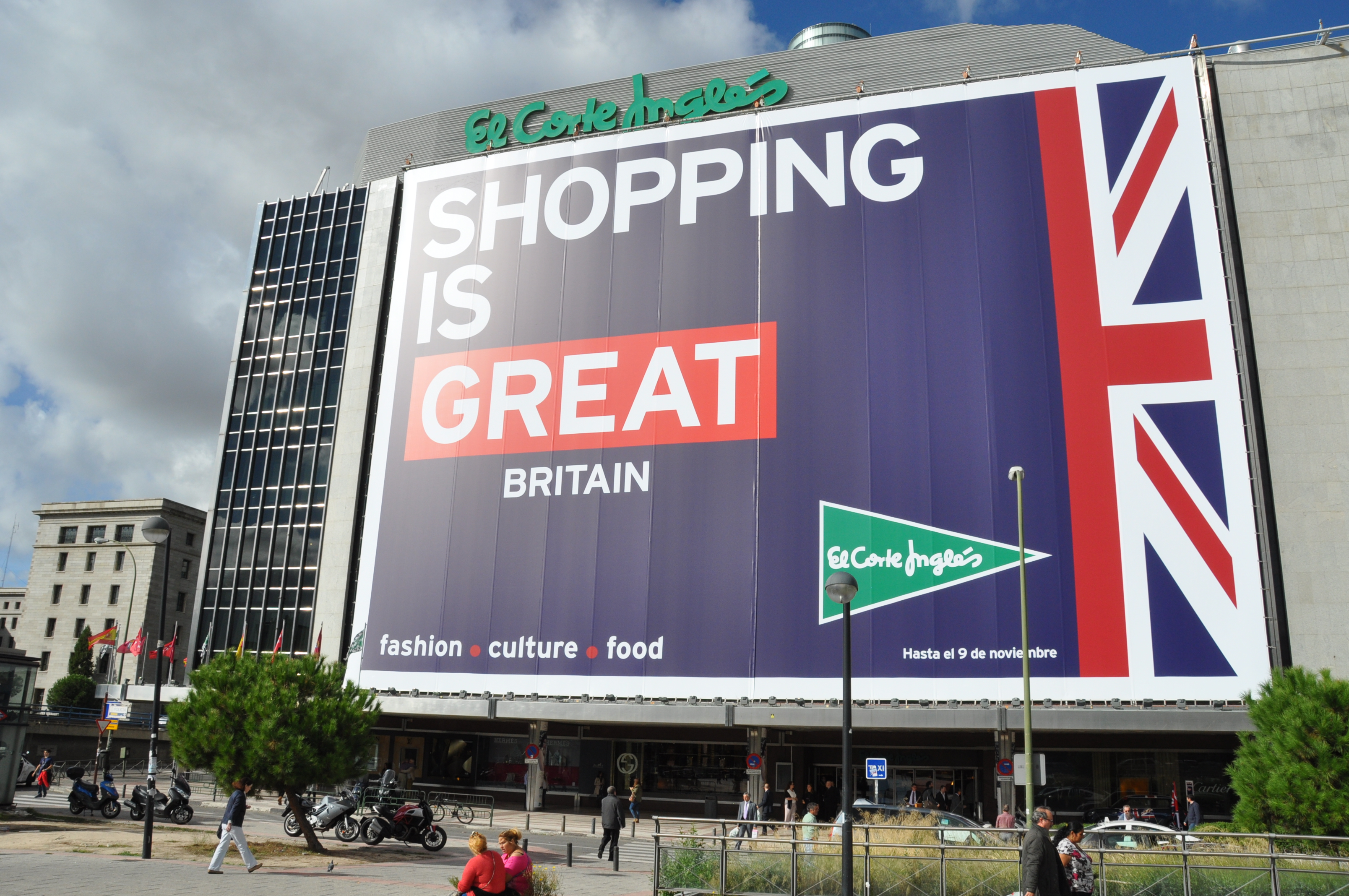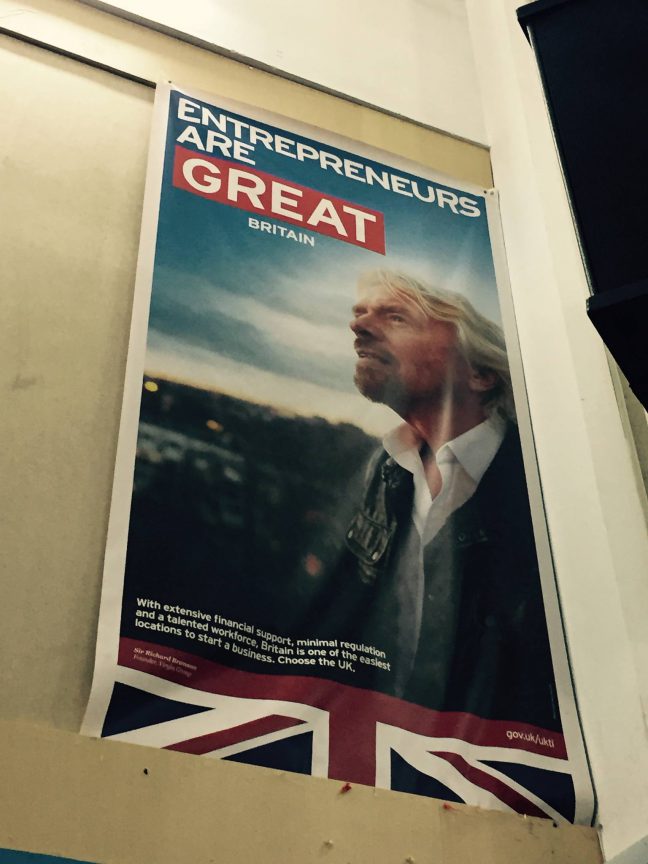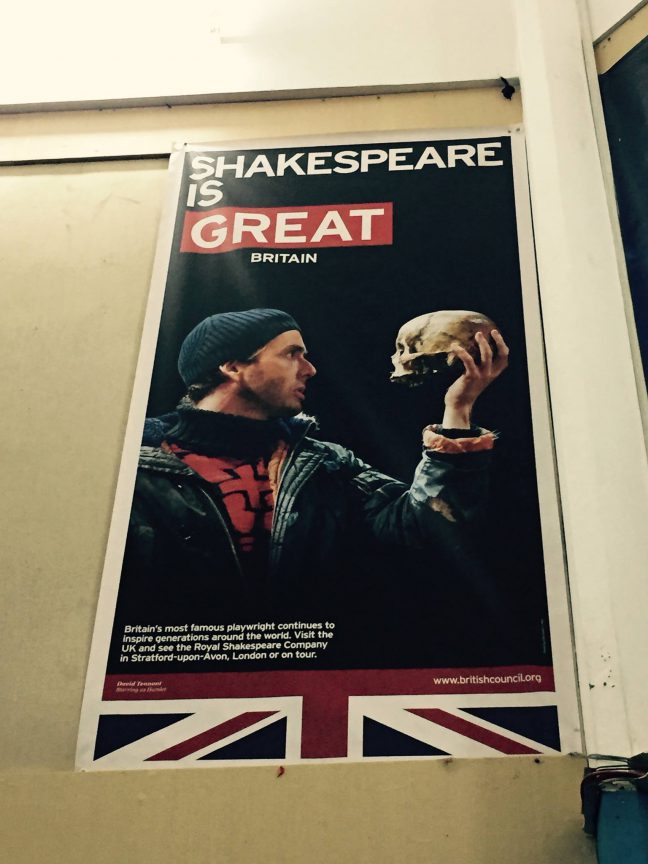Is It Time to Take the ‘Great’ out of Great Britain?
by Alice McCool
13 September 2016

If you’re from or have lived in the UK, you’ll be familiar with the tedious task of entering your details into an online form and scrolling through an alphabetical list of the world’s countries, second guessing what term they have used.
For me, options can include: United Kingdom, UK, Britain, Great Britain, GB, GBR, England. It’s also a weird one when you’re in a foreign country and people ask where you’re from. I tend to say the UK because it’s short and somehow feels like the least problematic term, but fairly regularly people will mishear UK for Ukraine. The struggle is real.
Beyond these minor irritations though, terminology matters. And these names for our country have deeply political connotations which have been used and abused for centuries. I am talking, in particular, about Great Britain (or GB). Last month sociologist Kehinde Andrews wrote an important article in the Guardian arguing that with the aid of Brexit and the Olympic successes of ‘Team GB’, colonial nostalgia is back in fashion. Use of the term Great Britain is very much part of this, which is funny considering the name far precedes Britain’s ‘great’ global empire.
How Britain became ‘great’.
According to social historian Jonathan Healey: “The term itself goes back to the middle ages, and was clearly well established by the 12th century. It referred to the island containing England, Scotland and Wales, and was used to distinguish ‘Great’ Britain from ‘Small’ Britain, i.e. Brittany.”
The term then turned more political due to relations between England and Scotland, particularly under the Scottish king James VI, who came to the throne of England in 1603. “He wanted to merge the two kingdoms into a single realm [this didn’t actually formally happen until a century later] and sought a name for the whole, choosing Great Britain,” explains Michael Brown from the University of St Andrews.
But prior to this, the term had also been used in marriage negotiations between the two countries in 1474 and more widely in 1543 – in English propaganda in favour of a union between Edward VI and Mary, Queen of Scots. According to Steven Gunn, a professor at Oxford University: “The majority of Scottish opinion turned against the marriage so…as well as invading they printed lots of pamphlets to try to persuade Scots it was good idea.”
So although used in a different way, even in the 16th century ‘Great Britain’ was a politically loaded term used by elites to gain popular support. With pamphlets. It’s strangely apt in light of the ongoing Scottish independence debate; if Scotland left the UK would the remaining countries technically need to drop the ‘Great’? The term also continues to be a touchy subject for Northern Ireland, which does not come under the (Great) Britain umbrella. This caused the Northern Irish sports minister to speak out against the name ‘Team GB’, arguing that it “excludes, and indeed alienates, the people of Northern Ireland.”
Making Britain great again.
In one sense, there’s the view that having the word ‘great’ in our country’s name literally means that we are great, i.e. special, excellent, da best. This sounds ridiculous, almost childish, but it’s actually how the British Council in collaboration with an array of government departments such as the Foreign and Commonwealth Office and UK Trade and Investment have chosen to market the UK around the world.

Pictured are photographs of GREAT Britain posters (note scary use of caps lock) at the British Council in Accra, Ghana. Not the best audience considering Britain’s long history of oppression in Ghana, from slavery to the colonial era, and its lasting effects on the wider African continent today.

The Britain-is-great concept was also used expertly by Brexit campaigners to capture the hearts and minds of the British people in the run up to the EU referendum. Vote Leave somehow argued that Britain is simultaneously great enough to stand on its own two feet without the EU, but has also lost its greatness because of the EU and needs to leave in order to regain it. Or both, if you’re Katie Hopkins – “We’re Great Britons and we want Great Britain back.”
For older generations a return to greatness might refer to the allied victory against the Nazis and subsequent post-war (and pre-EU) economic boom where Britons “never had it so good”, according to PM at the time, Harold Macmillan. In a way this is understandable – I don’t think my generation has ever seen a political leader in a position to say something like that with any kind of authority.
But more troubling is the colonial nostalgia that comes with the Great Britain messaging – and that’s not just one for the older among us. A 2014 YouGov survey found that 59% of respondents think the British Empire is something to be proud of. And while the age breakdown shows over-60s are most likely to feel proud, shockingly almost half (48%) of 18-24 year olds do as well. While I assume those who feel proud of the British Empire don’t actually want colonialism to happen again (right!?), reminders of this former ‘greatness’ strengthen the idea that Britain can go it alone and doesn’t need to be part of a union.
This arrogance is dangerous. Though these days the UK is not a complete irrelevance – to think we have a chance of regaining a presence on the geopolitical stage with the likes of the US and the BRIC and MINT countries is delusional. Not that this stopped UK Sport jumping on the nationalist bandwagon by declaring ‘GB’ is now a ‘sporting superpower’ following successes at the Rio Olympics.
In recent months we have seen the appointment of colonial sympathiser Boris Johnson as foreign secretary, as well as ominous remarks from Brexiters about “re-engaging with the Commonwealth” and tweets about how the British Empire won the Olympics. Add to this the massive rise in racist and xenophobic hate crime, and the vehement nationalism which Brexit seems to have unlocked in our national psyche, I can’t help but think it is time to take the ‘Great’ out of ‘Great Britain’.
In-text photos by Alice McCool.